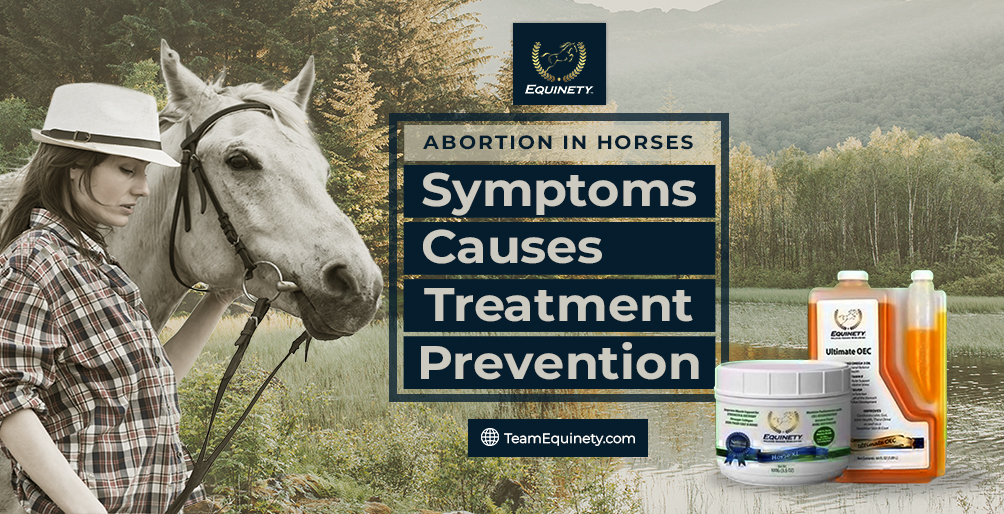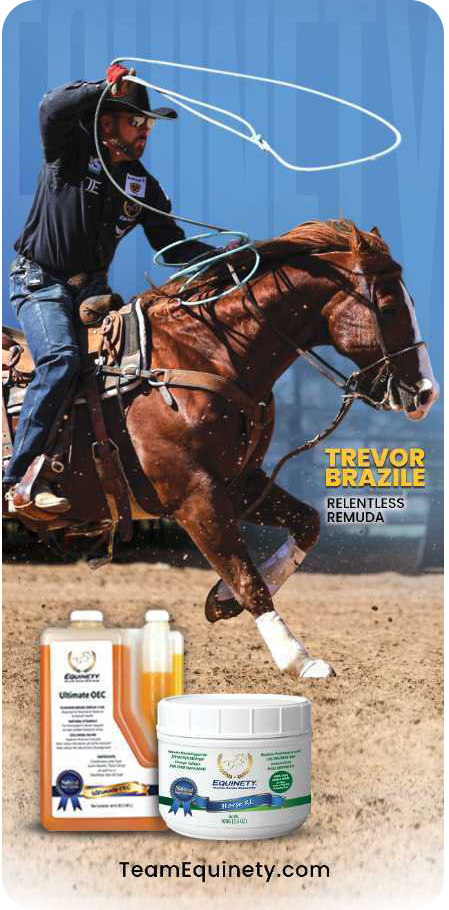Horses require intense care during pregnancy because abortion is a concerning issue that can occur due to different reasons. Abortion is the premature termination of pregnancy that may be difficult to pinpoint the cause. It can be experienced after weeks or months of exposure to toxins or infection, so you cannot find the reason that has disappeared. You can easily overcome this situation by following precautionary measures and extensive care.
5 Signs of Horse Miscarriage:
It is essential to recognize the signs of abortion or miscarriage early to manage a mare’s pregnancy. If you can work to identify the symptoms early, then sometimes the outcome can be different. So here are a few key signs of horse miscarriage that will help you to understand the reasons behind it.
1. Vaginal Discharge:
A change in vaginal discharge is considered the most noticeable and earliest sign of potential miscarriage, so if you experience bloody, cloudy, or thicker discharge, then you must monitor it.
2. Milk Production:
Premature milk production is another symptom of miscarriage where some mares start producing milk that is in the process of aborting a foal. If you see such signs in the mare, you should be worried about the health of the mare and foal.
3. Changes in Behavior:
Changes in the behavior of pregnant mares are also associated with miscarriage. In this situation, it becomes agitated and restless and shows signs of discomfort. These discomfort signs include frequently lying down and getting up.
4. Abdominal Pain:
Abdominal pain during pregnancy is unexpected as it indicates something problematic with pregnancy. When a mare faces abdominal pain, it may roll excessively and paw at the ground.
5. Fetal Tissues:
If you find fetal tissues in the paddock or stall, it is a clear sign that a miscarriage has happened. These tissues can vary due to the different stages of pregnancy that other mares are experiencing.
There is no single cause of abortion in horses because several factors contribute to equine miscarriage. Some of the most common reasons are below.
- Inadequate Nutrition:
Fetal development problems can exist if the mare is not getting sufficient nutrients during pregnancy because a proper and balanced diet is crucial for the health of the mare and foal.
- Health Issues:
If a mare is experiencing health-related issues like hormonal imbalances or uterine infections, the risk of miscarriage increases significantly.
- Genetic Issues:
Genetic abnormalities can also lead to miscarriage in mares due to chromosomal defects or other genetic issues.
- Infections:
Infectious diseases like leptospirosis and herpes virus have a significant role in early abortion in mares. In contaminated environments, these diseases can be transmitted from horse to horse.
- Environmental Factors:
Stressful conditions and exposure to environmental toxins can also contribute to miscarriage in mares. These factors include chemicals, herbicides, and pesticides.
Abortion treatment of equine is based on the underlying cause and stage of pregnancy. When a mare is experiencing a miscarriage, appropriate and quick treatment is necessary. So here, you will find a few common approaches to equine abortion treatment.
- Surgical Intervention:
In a few cases, it is necessary to go for surgical intervention when the fetus is alive, and there are chances to save it.
- Antibiotics:
Infectious diseases are common reasons behind abortion, so you may need antibiotics to treat infection.
- Supportive Care:
When the fetus is not still visible, then supportive care is enough as a treatment that includes minimal stress and provision of a stress-free environment.
- Uterine Leverage:
Uterine leverage is required in a few cases when pregnancy is old. This way, you can remove any remaining fetal tissues from the mare’s body.
- Hormonal Therapy:
Hormonal imbalances lead to miscarriage in mares. So, hormonal therapy can manage pregnancy-related issues.
How to Prevent Miscarriage and Abortion in Mares?
Veterinary care and proper management are necessary to prevent abortion and miscarriage in mares. You can go for the following options:
1. Regular Checkups:
Regular veterinary checkups play a vital role in preventing miscarriage in mares. It will allow early detection of disease and timely intervention.
2. Proper Nutrition:
Proper nutrition throughout the pregnancy is crucial for the health of the fetus and mare. Balanced feed high-quality forage can support a healthy pregnancy.
3. Stress-Free Environment:
Stress is a major contributory factor in abortion, so always provide a stable and calming environment. It would be best if you avoided changes in routine and unnecessary transportation during the pregnancy.
4. Vaccination:
Vaccination of mares against various infectious diseases will help reduce the chances of miscarriage and abortion due to these pathogens.
5. Use of Natural Supplements:
Equinety Horse XL and Equinety Ultimate OEC are two unique products. You can combine them to make a powerful natural supplement for the well-being of the mare throughout the pregnancy. These products are capable of tackling all health-related issues that are caused by poor or insufficient diet.
Certain viruses can lead to abortion in mares. So, understanding these viruses and their prevention is crucial for keeping your mare and fetus healthy.
- Equine Viral Arteritis (EVA):
EVA is a virus that can lead to abortion and miscarriage in mares. Vaccination will help in the prevention of EHV breakouts.
- Equine Herpes Virus (EHV):
EHV is another virus that mainly spreads through respiratory secretions, so testing and vaccination will be beneficial for avoiding any unfavorable outcomes.
FAQ’s:
How long can a mare carry a dead foal?
A mare can carry a dead foal for a few weeks. But it’s essential to consult with a vet immediately as there is a risk of infection.
Can a mare abort one twin and not the other?
Yes, it is possible and known as one-sided twinning. This condition happens due to a problem with the placenta of an aborted twin.
How do you tell if your mare is pregnant with twins?
Ultrasound is the best technique to determine whether a mare is pregnant with twins.
Equine average abortion rate (According to Survey):
The average abortion rate of equines varies depending on factors like health, age, vaccination, and management practices. If we talk about the general average abortion rate of horses, then it is around 10%. (Survey of the equine broodmare industry by national Library of Medicine)
Expert’s Equine Guides for You:
- Pregnant Mare Supplements and Nutation Care
- Laminitis In Horse: Causes, Symptoms, Treatment
- How to Increase Horse Hoof Growth
- Best Joint Support Supplements (2023)
- Muscle Recovery Natural Supplements for Horses
- Best Gut Health & Digestive Supplement for Horses
- Horse Weight Loss Symptoms and Causes
- Digestive Supplements for Equine (2023)
- How to Boost Horse Immune System Naturally







